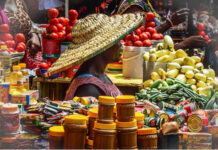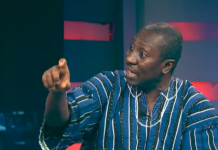
The cedi-to-dollar debate has for years dominated our political landscape. It has evolved into a political tool used by both parties to determine who manages the economy better. The dollar’s price is determined by a variety of factors, including our reserves, demand and supply, market participants’ expectations, and so on, which all influence the cedi’s performance against the US dollar in terms of nominal or rate value. This is impacted by diverse economic factors and has evolved into an old-age dispute about who has the best tenure.
One major influence on the value of the cedi is the monetary policies of the United States, which also have an impact on the local currencies of other countries, with developing countries having to convert more of their currencies to obtain a dollar whenever interest rates are increased in the United States. This implication makes the cost of borrowing rise in all countries, which means you pay more in your local currency than you used to purchase one dollar. This conundrum has had a harmful effect on nations around the world while benefiting the United States. That is the reason why some countries are shifting away from the dollar and moving towards other alternative modes of payment or use of their local currencies to cushion the strength of their currency.
The Ghana Cedi, despite the decrease in value in exchange rate to major global currencies, is currently the 4th best currency in Africa in terms of exchange rates as of the 30th of April 2024, according to the monthly currency report for May 2024 Exchange Rates by the African Development Bank out of 41 African countries, with a 17.4941 rate per UA (rate per UA is the exchange rate of a currency in relation to the Unit of Account of the West African Monetary Union, WAMU, which is pegged to the Euro) just behind the Tunisian Dinar, Libyan Dinar, and Moroccan Dirham, with rates of 4.14107, 6.42056, and 13.3065 per UA, respectively, which is applicable to the month of May 2024. This demonstrates that the Ghana Cedi is performing well in comparison to other African currencies in the global FX market.
The gold for oil policy, initiated by the New Patriotic Party government, is one of the many interventions by the New Patriotic Party government to strengthen the value of our currency. It is a policy used to try and reduce the demand for the dollar by purchasing petroleum products with gold. This policy contributed to the steady rate of our local currency by relatively stabilizing the value of the cedi and reducing the demand for forex, which led to competitive prices at the pump. This policy can be said to be a short-to-medium-term relief to resolve the cedi depreciation.
As the struggle to get a stronger currency persists, the government of the New Patriotic Party is not sitting aloof. H.E. Nana Addo Dankwa Akuffo-Addo with his indefectible vice H.E. Mahamudu Bawumia is transforming our economy with the 1D1F policy. This policy, currently with over 150 factories in operation and more to come, is aimed at industrializing the Ghanaian economy and transforming it from a Guggisberg economy of import dependence to a major export producer. This, in turn, will reduce demand for the US dollar and subsequently make the cedi stronger.
Critics of this policy will question whether industrialization will ever be realized, but I implore them, the Ghanaians, to have a pinch of patience with the New Patriotic Party government. It took China 35 years to move from an agrarian economy to an industrialized nation. As we speak, China is the biggest economy in the world. We will get there with the New Patriotic Party.
By: Neil Owusu
Member, NPP National Communication Team




